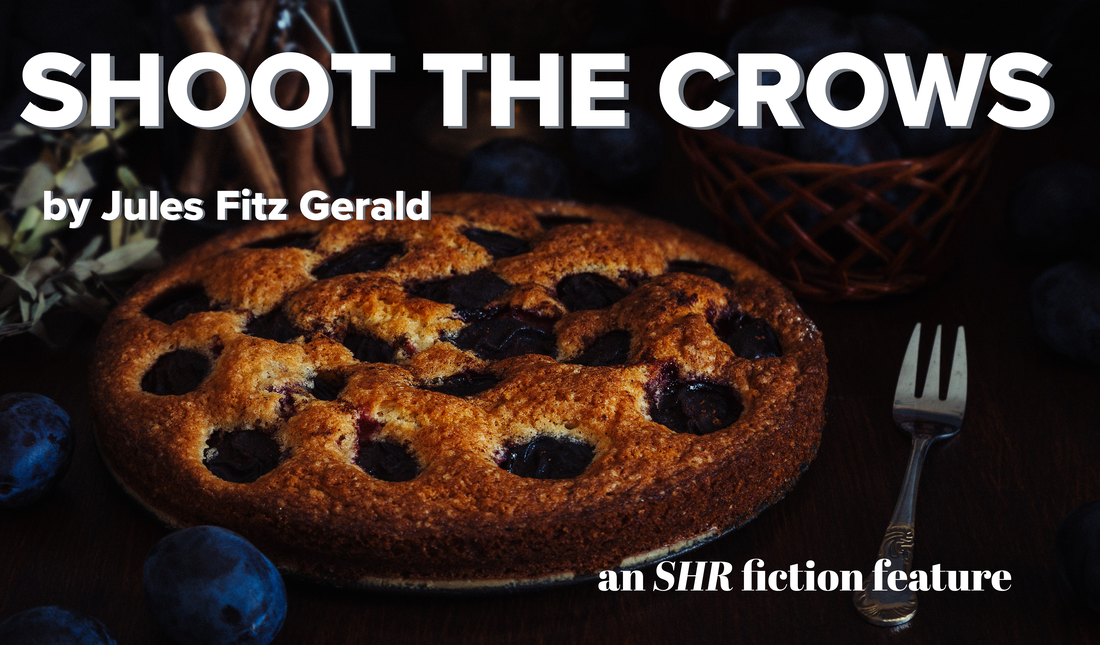Maybe that had something to do with it. Why I was rotten.
Used to be a lot of wrecks like that, salvage washed ashore. Daddy built our house with it. He said the logs he used for the pilings probably came off the upper decks of a ship from South America. I don’t know where he got the nails. When I asked him the difference between salvage and wreck, he said wreck becomes salvage the second somebody touches it.
Once I saw Daddy eat a goose turd. Mother had put it on a plate. It was greenish-white, half-curled. Dry-looking. Daddy had a fork and a knife. Mother said, “You eat that or walk out the door and don’t come back, and I’ll make sure they all know why.”
Daddy looked down at the plate. “Caroline, you can’t be serious.” He never called Mother by her name. I thought I was going to be sick just looking at the goose turd.
But then Daddy started cutting it into tiny pieces, slowly, with the knife and fork. I thought it would have been better to cut it into big pieces, to get it over with.
He was sick for a week, but he didn’t leave. You never forget something like that, not even after everything else is gone.
It’s a prison of memory, I think. I forget what I want to remember and remember what I want to forget. I remember my crimes, but not my trial.
The birds are gray and yellow, with spiked yellow crowns they raise like an eyebrow or a middle finger. On either side of their heads is an eye like a ball bearing that can swivel in any direction, and below it is a bright orange circle. I watch them pick their feathers clean and grind their beaks on the bars of their cage, and they watch me. Sometimes one will nibble my finger in a friendly way. When the prison is quiet, they are quiet. But when visitors come, they become frantic and scream.
A woman comes to visit me sometimes. She brings chocolate-covered coconut bars and my daughter, or I think she is my daughter. The girl is tall and slender and golden. I cannot remember her name, so I smile at her instead.
I wish I could explain to her why I did what I did. I reach for the words with my tongue, and they dart and spark away from me the way fish run like slivers of light from footsteps. It must be the shadow on the water that scares them. My tongue twists like a bloodworm, but the words won’t bite. Too smart, Daddy would say. A smart fish knows better not to eat than be eaten. I heard a preacher once say the tongue is the strongest muscle in the body. Figures a preacher would say that. A preacher ain’t nothing but tongue.
The woman’s hands are cold when she touches my arm. She unwraps the chocolate for me. It might be poisoned, so I don’t touch it. Then she says, “Eat your chocolate, Mama,” which confuses me. Is she calling me that for Rendi? I look at the girl, but her eyes are the wrong color. Or maybe they are right, but I am remembering wrong.
“It’s your favorite, Grammy,” the girl says. And that’s the problem. Like everything is still happening at once, and sometimes it’s now, and sometimes it’s not now. People are alive after they’re dead and dead before they’re alive.
“Lila got all As on her report card,” the woman says.
I reach for the girl’s hands. Her fingers are warm. She lets me squeeze them. Maybe she doesn’t hate me. Or else she is being polite. When they get up to leave, I let go.
I eat the poisoned chocolate before I remember.
When I was nine years old, we noticed a mess of wild blackberry bushes in the scrub in the deserted lot across the road, and come July when the berries were almost ripe, she asked me if I wanted a pie. Of course I said yes. Blackberry pie was my favorite.
“Then you’ll have to shoot the crows,” Mother said. She put the pistol in my hand. “Aim low, and hold your breath. It’ll jump on you.”
I scared most of them away before I hit one. It screamed like an old woman and fell, wings twisted and still trying to beat. Mother made me find the body and bury it. Its feathers were the same purple-black as the berries, and its blood was the color of pie juice.
That was the last time I cried in front of Mother.
“I want you to know I’m here for myself, not for you,” she says. “So I don’t have to feel guilty when you’re gone. Don’t think it’s because I’ve forgiven you.”
I open my mouth and out comes a dove moan like child’s breath humming through a small-necked bottle.
I remember the arrowhead scar of the iron on Rendi’s thigh, and I wonder if it still smells like burnt oatmeal and browning meat.
Rendi was visiting with the baby—the girl, the one she kept, not the boy, the older one I pretended was mine. Only my children ever knew who I really was. Rendi, and Roy, if you count him. The only good thing I ever did was not tell Roy who his real mother was. Better for him to have only one of us to hate.
Rendi was nursing, maybe. No, Lila was too big for that. Three or four. She could stand on her own two feet. I remember because she was standing, looking at me when I came into the living room with Mother’s pistol.
I said to Rendi, “First I’m going to shoot you, and then I’m going to shoot the baby, and then I’m going to shoot myself.”
“No, you’re not,” Rendi said. She was a lot calmer than I expected.
“Yes, I am.”
“Mama, please put the gun down.”
I took the gun to the bedroom and locked myself inside. That was my mistake, I realized—I told her what I was going to do instead of just doing it. But I didn’t really want to shoot the baby. I didn’t want to shoot Rendi either.
The handle rattled. “If you don’t open this door,” Rendi said, “I’m calling the police.”
I leaned back against the door and pressed the cold hollow nose of the pistol into the roof of my mouth.
“I’m going to count to three,” my little girl said.
The birds stir and chatter at my approach. One bobs his head at me, his crest lifted, beak parted to reveal a crooked tongue. I hold a crooked finger to my lips and hum.
It takes me a long time, but I get the cage door open. It takes them even longer to figure out they can leave. I wait, squinting at their shadows, listening for the soft click of talons on the bars. Then the beating of wings, a sound like shaking out a pillowcase, or a rug. It feels good to let them out for a while, even if they can’t fly any farther than I can.
Then one thumps the window and falls.
I carry the body back to my bed and lay it in the grave of my nightstand drawer. I am sorry, I wish I could tell it. I am so, so sorry. Maybe some of us aren’t meant for freedom.
The poison, I think, is working. There is a sharp pain in my stomach, and when I use the bathroom, there is blood the color of blackberries. I am turning into a blackberry pie. But if they cut me open, they will only find crows.
CURRENT ISSUE
|
CONTACT
|
DEPARTMENT OF ENGLISH
|


